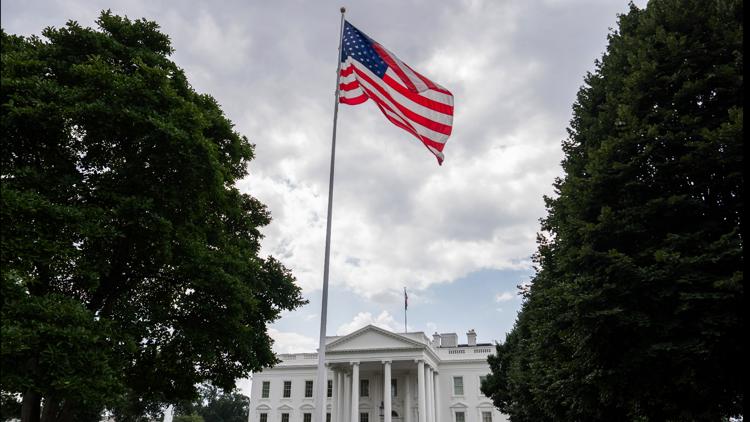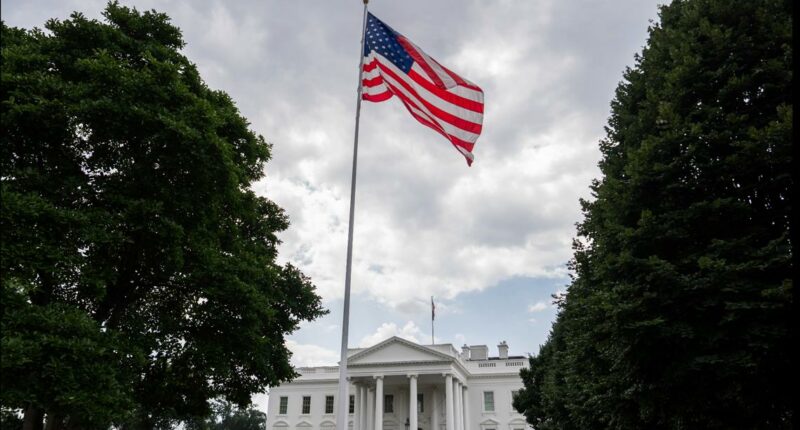Share this @internewscast.com

Leaders from over 60 companies, including Google and Amazon, are meeting at the White House later Wednesday to discuss a “digital health ecosystem.”
WASHINGTON — The Trump administration is advancing a plan for millions of Americans to engage with what they describe as a “digital health ecosystem.” This proposed system aims to address diabetes and weight management, incorporates conversational artificial intelligence to assist patients, and utilizes digital tools like QR codes and apps for patient check-ins and medication tracking.
This initiative, driven by an administration known for handling Americans’ personal data in legally challenging ways, might clash with patients’ wishes for convenience in healthcare against their need for privacy regarding their medical information.
“There are enormous ethical and legal concerns,” stated Lawrence Gostin, a public health law expert from Georgetown University. “Patients nationwide should be very concerned about the potential misuse of their medical records, which could adversely affect them and their families.”
The Centers for Medicare and Medicaid Services, overseeing the system’s implementation, assure that patients will have to opt in for their medical information to be shared, ensuring the data remains protected.
Officials highlight that patients will gain from a system that enables immediate access to their own health records, avoiding traditional issues like the reliance on fax machines for document sharing, which have been obstacles in the past.
“We now have the tools and information necessary to empower patients to enhance their health outcomes and overall healthcare experience,” Dr. Mehmet Oz, the CMS administrator, remarked in a statement on Wednesday.
Once the system is set up, popular weight loss and fitness subscription service Noom, which has signed onto the initiative, will be able to pull medical records, including labs or tests, of its users into its AI-driven analysis of what might help users lose weight, CEO Geoff Cook told The Associated Press.
“Right now you have a lot of siloed data,” Cook said.
Patients who travel across the country for treatment at the Cleveland Clinic often have a hard time obtaining all their medical records from various providers, said the hospital system’s CEO, Tomislav Mihaljevic. He said the new system would eliminate that barrier, which sometimes delays treatment or prevents doctors from making an accurate diagnosis because they do not have a full view of a patient’s medical history.
Having seamless access to health app data, such as what patients are eating or how much they are exercising, will also help doctors manage obesity and other chronic diseases, Mihaljevic said.
“These apps give us insight about what’s happening with the patient’s health outside of the physician’s office,” he said.
CMS will also recommend a list of apps on Medicare.gov that are designed to help people manage chronic diseases, as well as help them select health care providers and insurance plans.
Digital privacy advocates are skeptical that patients will be able to count on their data being stored securely.
The federal government has done little to regulate health apps or telehealth programs, said Jeffrey Chester at the Center for Digital Democracy.
Health and Human Services Secretary Robert F. Kennedy Jr. and those within his circle have pushed for more technology in health care, advocating for wearable devices that monitor wellness and telehealth.
Kennedy also sought to collect more data from Americans’ medical records, which he has previously said he wants to use to study autism and vaccine safety. Kennedy has filled the agency with staffers who have a history of working at or running health technology startups and businesses.
“This scheme is an open door for the further use and monetization of sensitive and personal health information,” Chester said.
Copyright 2025 Associated Press. All rights reserved. This material may not be published, broadcast, rewritten, or redistributed.















